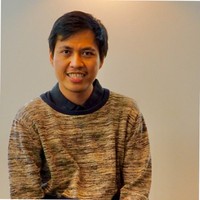
- This event has passed.
Boundary Objects within the Discourse on the Development of Complex CPS
Half-way seminar for PhD student Rusyadi Ramli
This seminar will present the role of boundary objects, explore the contextual factors of boundary objects, and discuss how to design effective boundary objects within the discourse on the co-engineering practice in the development of complex CPS. All with an interest in this topic are welcome to join (Gladan, Brinellvägen 85, plan 3).
Abstract for the half-way seminar by Rusyadi Ramli:
Cyber-Physical Systems (CPS) are evolving to become more intelligent, connected, and collaborative due to the advancement of technology. Provided with unprecedented capabilities, these CPS also represent unprecedented complexity and bring new risks beyond classical dependability. As CPS are becoming more complex to realize, this requires an increasing breadth of knowledge and skills and a stronger emphasis on collaborative engineering (co-engineering) to deal with the multitude of viewpoints involved.
To facilitate co-engineering practice, engineers commonly used artifacts such as architectural frameworks and standards during the development of complex CPS. These artifacts can be considered as boundary objects, i.e., objects that hold different meanings to several Community of Practice and serve to translate information between them. This research focuses on boundary objects, (e.g., what is the role of boundary objects, what are the contextual factors of boundary objects, and how to design effective boundary objects within the discourse on the development of complex CPS). The current results show that the concept of boundary objects within the discourse on the development of complex CPS is not well-defined. Nonetheless, the results indicate that the concept of, and the role of, boundary objects can be identified based on three contextual factors e.g., structure, identity, and culture. The results suggest that the concept of boundary object has narrowed down towards matters of structure and identity within the discourse on the development of complex CPS.
Moreover, this research indicate that the boundary objects can be categorized into four categories based on two implicit, orthogonal dimensions present in the discourse, i.e.,
- boundary objects can be either transparent or opaque, and
- boundary objects can be either a support to, or a limiter on, human activity.
These categories suggest that the discourses on automation and organisational learning could be used to elicit a deeper understanding of enablers or barriers to boundary objects.

Bio: My research interests fall at the intersection of systems engineering, engineering design, and engineering management. Currently, my research focuses on investigating the role of engineering artefacts to e.g., bridge the knowledge gap and promote compromise among different Community of Practices (e.g., safety engineers, cybersecurity engineers, software engineers) in the development of trustworthy complex systems (e.g., connected and automated vehicle, intelligent transporation systems, etc).
Some theories I use for my PhD research include boundary objects, organizational learning, and social-practice theory. As for the research methods, I mainly use field-based methods such as expert interviews and participant observation to conduct my research.